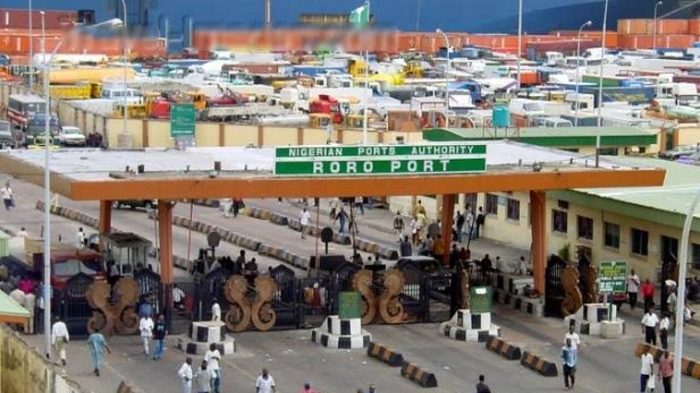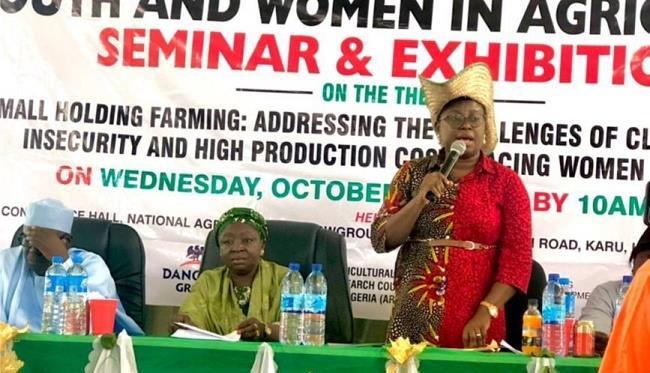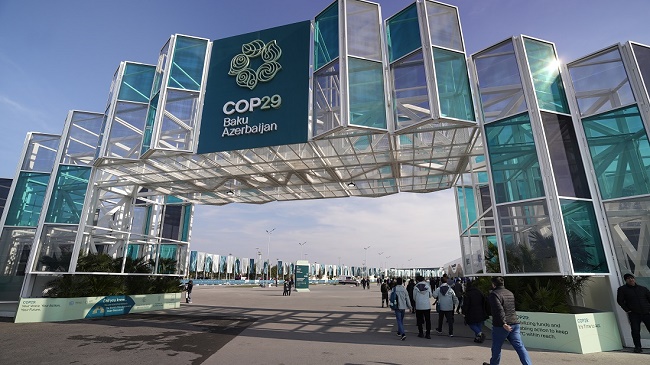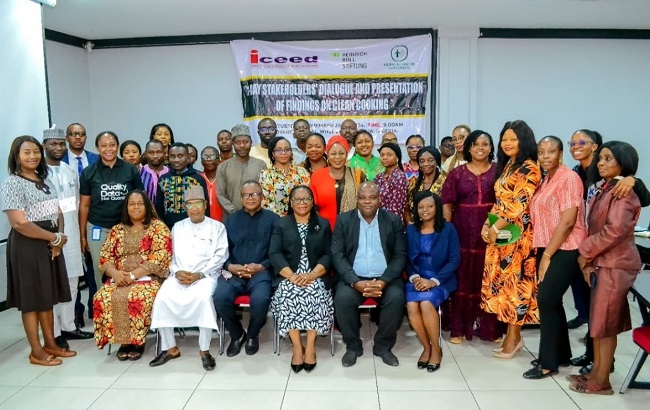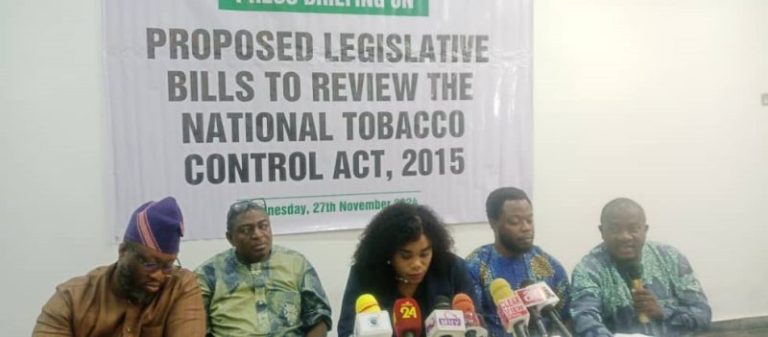Some 220 fossil fuel and chemical industry lobbyists registered to participate in the fifth and final scheduled session of the Intergovernmental Negotiating Committee (INC-5) in Busan, Republic of Korea, to advance a global plastics treaty. The negotiation is expected to develop and deliver the final text of the future treaty before it will be advanced for adoption.
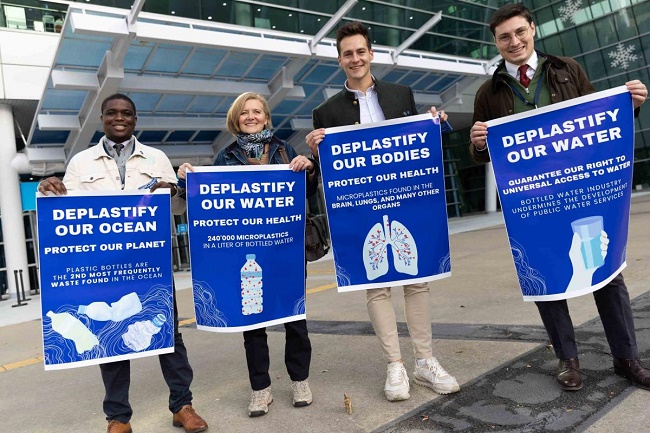
A new analysis from the Centre for International Environmental Law (CIEL) – supported by International Indigenous Peoples’ Forum on Plastics (IIPFP), the International Pollutants Elimination Network (IPEN), the Break Free From Plastic movement, the Global Alliance for Incinerators Alternatives (GAIA), Greenpeace, and the Stop Tobacco Pollution Alliance (STPA) – and based on the United Nations Environment Programme’s (UNEP) provisional list of INC-5 participants, finds that:
• 220 lobbyists are registered to attend INC-5, the highest at any negotiation for the plastics treaty so far analysed by CIEL, more than the previous high of 196 lobbyists identified at INC-4
• Fossil fuel and chemical industry lobbyists taken together would be the largest single delegation at INC-5, significantly outnumbering the host Republic of Korea’s 140 delegations. Lobbyists also outnumber the delegations from the European Union and all of its member states combined (191).
• 16 lobbyists were identified in national delegations, including those from China, the Dominican Republic, Egypt, Finland, Iran, Kazakhstan, and Malaysia.
• Dow (5) and Exxonmobil (4) were among the best-represented fossil fuel and chemical companies with numerous lobbyists attending the talks.
• Chemical and fossil fuel industry lobbyists outnumber the Scientists’ Coalition for An Effective Plastic Treaty by three to one.
With each INC, there has been an increase in the number of fossil fuel and petrochemical industry lobbyists, but the efforts to effect the future treaty extend well beyond the negotiations themselves. Reports of intimidation and interference have surfaced, including allegations of industry representatives intimidating independent scientists participating in the negotiations and pressure on country delegations by industry to replace technical experts with industry-friendly representatives.
Civil society organisations, independent scientists, and rights holders – who attend negotiations to advocate for an ambitious treaty that reduces plastic production, upholds human rights, and stays within planetary boundaries – face significant barriers to participation. Unlike the well-funded fossil fuel and chemical industries, these groups often struggle with financial and logistical limitations, reducing their ability to engage in negotiations.
Meanwhile, the fossil fuel and chemicals industry mobilises significant financial and human resources not only to influence negotiations, but to privately lobby leaders and discreetly back positions held by petrostate allies who openly defend their shared financial interests.
“From the moment the gavel came down at UNEA-5.2 to now, we have watched industry lobbyists flooding the negotiations with sadly well-known tactics of obstruction, distraction, intimidation, and misinformation,” says Delphine Levi Alvares, Global Petrochemical Campaign Coordinator at the Centre for International Environmental Law.
“Their strategy – lifted straight from the climate negotiations playbook – is designed to preserve the financial interests of countries and companies who are putting their fossil-fueled profits above human health and the future of the planet. The mandate for this Treaty is very clear: ending plastic pollution. We have an ever-growing amount of health, economic, and empirical evidence from frontline communities, Indigenous Peoples, and independent scientists that clearly states we need to reduce plastic production in order to address plastic pollution. The choice is clear – our lives or their bottom line,” adds Alvares.
At INC-4 in Ottawa, the surroundings of the negotiation room were flooded with pro-plastic ads claiming its essential value for human life and well-being. The negotiation rooms were no different – with petrostates proclaiming plastics’ contributions to economic and social development. However, the numbers tell a different story: plastic production accounts for a mere 0.6% ($627 billion) of the global economy and reducing our dependence on plastics is unlikely to impact economic growth. Ahead of INC-5, the Office of the High Commissioner for Human Rights acknowledged that plastic pollution is incompatible with the enjoyment of the rights to development and a healthy environment.
“Plastic markets are already oversupplied. The world simply cannot afford to continue producing more plastics as a means of sustaining fossil fuel dependency,” says Daniela Duran Gonzalez, Senior Legal Campaigner at the Centre for International Environmental Law. “Shrinking demand, closing facilities, diminishing profit margins – expanding plastic production is bad business. If member states are truly committed to fair and equitable development, they would support mandatory rules to reduce production, starting with a halt to the construction of new production facilities. This is a moment for courage – for our economy, our planet, our climate, and the rights of present and future generations.”
The stakes at INC-5 are particularly high, following faltering progress in biological diversity and climate talks, where some of the same industry-friendly players have delayed meaningful action. These negotiations, like many Multilateral Environmental Agreements (MEAs), are hamstrung by consensus-only rules and the lack of robust conflict-of-interest safeguards.
At the opening plenary of INC-5, the same states that championed consensus requirements in earlier conventions lined up on the floor to oppose the idea of making decisions by voting, rather than consensus. Thirty years of evidence show that consensus-based MEAs allow the most obstructive actors to dictate outcomes, undermining ambition and leaving frontline communities to bear the brunt of the climate and biodiversity crises. Unless addressed in the treaty text, these same issues will carry over into meetings of the future Conferences of the Parties, which will operate under its own rulebook.
The parallels are evident in Busan, with powerful actors seeking a weak plastics treaty working to embed failure into the very structure of the treaty. And UNEP, the very body tasked with delivering an ambitious agreement, is not immune to corporate capture, raising serious concerns about its ability to protect public and environmental interests.
“We must not let the failures of other negotiations doom the plastics treaty,” concludes Rachel.
Radvany, Environmental Health Campaigner at the Centre for International Environmental Law, says: “This week we have the chance to chart a better course. Countries must seize this
once-in-a-lifetime opportunity and use every tool at their disposal to prevent obstructionism and end corporate capture of this negotiation. We must secure a treaty that includes strong conflict of interest protections, lobbying disclosures, and the option to vote at future meetings of the Conference of the Parties.”
Juressa Lee, Co-Chair, International Indigenous Peoples’ Forum on Plastics (IIPFP), says: “Indigenous Peoples already experience barriers to full and meaningful participation in these talks, from registration to attendance to speaking rights to recognising us as Rights Holders. As a caucus, we’ve had to backfill needs where we believe UNEP has shirked their responsibilities to facilitate procedural justice. For us to be competing with Industry representatives in and outside of Member State delegations for space is a cruelty. For polluters’ attendance to be marginalising Indigenous Rights is a contradiction of the entire purpose of this meeting.
Yuyun Ismawati, Co-chair, International Pollutants Elimination Network (IPEN), says: “IPEN continues to be concerned about the overly influential role that the plastics, petrochemicals, and fossil fuels industries play at the Plastics Treaty talks. As the recent California lawsuit shows, these industries have lied for decades about plastic recycling. As another recent report notes, the companies allied to ‘solve’ plastic pollution have produced 1,000 times more plastic than they cleaned up. We must eliminate industry conflicts of interest from these proceedings. It’s time for delegates to understand that we cannot trust these industries – their only agenda is to maintain their profits at any cost.”
Deborah Sy, Head of Global Public Policy and Strategy at GGTC, Stop Tobacco Pollution Alliance (STPA), says: “It’s no surprise the plastics treaty struggles with corporate influence, given the tobacco industry’s continued role as an observer – despite clear FCTC guidelines against such interference. This disregard for established rules signals a deeper lack of integrity, allowing corporate interests to corrupt decision-making processes.
“The Conference of the Parties to the FCTC, in noting the INC’s work on the plastics treaty, emphasised the need to protect tobacco-related environmental policies from the commercial and vested interests of the tobacco industry. Cigarette butts, one of the most littered and harmful forms of avoidable plastic waste, must be banned immediately as part of any serious effort to combat plastic pollution. To advance a plastics treaty that aligns with the Sustainable Development Goals, the INC must adopt integrity principles and commit to upholding existing rules and to developing sector-specific measures to prevent corporate capture.”
Ana Rocha, Director of Global Plastics Program, Global Alliance for Incinerators Alternatives (GAIA), says: “Waste pickers, Indigenous Peoples, youth leaders, and frontline community members have left their families to travel thousands of miles to be here, not to protect their business interests, but because they are fighting for survival. The fact that they are forced to compete for the ear of their representatives with the very industry that is poisoning their communities is a serious injustice.”
Von Hernandez, Global Coordinator, Break Free From Plastic (BFFP), says: “Allowing fossil fuel and petrochemical companies to exert their influence in these negotiations is like letting foxes guard the henhouse. Their oversized presence threatens to turn a critical environmental agreement into a charade, undermining serious efforts to curb plastic production and pollution. Government negotiators must stand firm and ensure these talks are not hijacked by those with vested interests in maintaining the status quo.”
Graham Forbes, Greenpeace Head of Delegation to the Global Plastics Treaty negotiations and Global Campaign Lead for Greenpeace USA, says: “The analysis exposes a desperate industry willing to sacrifice our planet and poison our children to protect its profits. Fossil fuel and petrochemical lobbyists, aided by a handful of member states, must not dictate the outcome of these critical negotiations. The moral, economic, and scientific imperatives are clear: by the end of the week, member states must deliver a Global Plastics Treaty that prioritises human health and a liveable planet over CEO payouts. The global majority demands a strong agreement that cuts plastic production and ends single-use plastics.”

